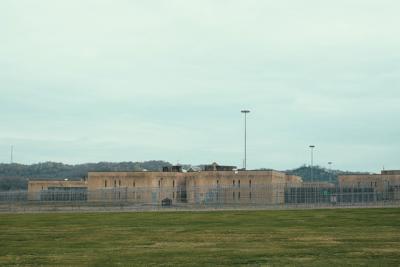This story is a partnership between the Nashville Banner and the Nashville Scene. The Nashville Banner is a nonprofit, nonpartisan news organization focused on civic news. Visit nashvillebanner.com for more information.
The Tennessee Supreme Court has ordered four men to be executed before the end of this year, setting up the return of the state’s death penalty after five years without an execution.
With four orders released on Monday, the court reset execution dates for four men who received reprieves in 2022 after Gov. Bill Lee ordered an independent review of the state’s lethal injection protocols. The men now scheduled to be killed in the death chamber at Riverbend Maximum Security Institution in Nashville are:
- Oscar Smith, May 22
- Byron Black, Aug. 5
- Donald Middlebrooks, Sept. 24
- Harold Nichols, Dec. 11
Tennessee now joins seven other states planning to execute death row prisoners this year.
'Due to an oversight in preparation for lethal injection,' Thursday's planned execution will not move forward as planned
Smith was a little more than an hour away from being executed on April 21, 2022, when the process was abruptly stopped after errors related to the lethal injection process were revealed.
The subsequent review of the process found state officials had repeatedly failed to follow their own processes and had conducted executions without properly testing drugs. In December, the Tennessee Department of Correction announced that it had finalized a new one-drug protocol using the barbiturate pentobarbital.
In a statement, supervising assistant federal public defender Kelley Henry decries the process that led to the new execution dates.
“Oscar Smith was 30 minutes from execution and in the process of receiving holy communion when his execution was called off due to the discovery that members of TDOC and the supplier of its lethal injection drug had regularly and consistently misled the courts, the public, and our clients as to their willful non-compliance with the execution protocol,” Henry says via email. “Since that time, the state has worked in secret to adopt a new protocol. The new protocol is shocking in its lack of transparency and detail.”
The state will resume executing people on death row using the single drug pentobarbital
The men who have received new dates have all been on death row since the 1980s. All four will have a choice between lethal injection or the electric chair, since they were convicted before the state adopted lethal injection as its official execution method.
Smith was sentenced to death by a Nashville jury for the 1989 murders of his estranged wife, Judy Smith, and her two sons, Chad and Jason Burnett. He has maintained his innocence. In a 2019 court filing, his attorneys argued, among other things, that his conviction was “based on an impossible prosecution theory that conflicts with the physical evidence.”
Black was sentenced to death in Nashville in 1989 for the murders of Angela Clay and her two daughters, Latoya and Lakeisha. His attorneys have argued that he was convicted after a “sham” trial and that Black is mentally incompetent to be executed. They have written that he has an IQ of 67, suffers from brain damage and has been diagnosed with schizophrenia. They also wrote that Black has various medical ailments, including congestive heart failure and a degenerative joint disease in his hip that has left him almost unable to walk.
Middlebrooks was sentenced to death in Nashville for the 1987 torture and murder of Kerrick Majors. His attorneys have argued that he is also mentally incompetent to be executed and cited the severe physical and sexual abuse he suffered as a child, including being raped by his mother. In a 2019 court filing, they wrote that Middlebrooks “suffers from a well-documented constellation of serious, debilitating psychiatric and medical diseases.”
Nichols was sentenced to death in Chattanooga for the 1988 rape and murder of 21-year-old Karen Pulley. After his arrest, he also confessed to several other area rapes. Nichols suffered physical and sexual abuse as a child, according to court documents. In 2018, Chattanooga’s district attorney agreed to a settlement that would have seen Nichols resentenced to life in prison, but a judge rejected the agreement.
This article first appeared on Nashville Banner and is republished here under a Creative Commons license.







